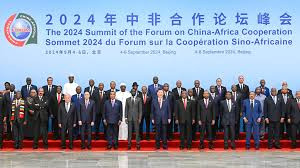
As a journalist, media house, or activist, have you ever faced a lawsuit that made you wonder if there was more to it than meets the eye? You're not alone.
Strategic litigation against public participation (SLAPP) suits are on the rise, and they're threatening to stifle free speech and silence critical voices.
These lawsuits are often disguised as legitimate legal claims, but their true intention is to intimidate and bankrupt the targeted defendant.
The fear of financial ruin forces many to cave in, sacrificing their right to speak truth to power.
It's time to expose SLAPP suits for what they are – a thinly veiled attempt to muzzle dissent and undermine democracy.
From time immemorial, journalists, media houses, activists and individuals have been faced with lawsuits for simply being the voice of the voiceless or bringing to light information that would be of public interest. There are two types of lawsuits, the generally reasonable legal suits and those meant to silence the particular individual(s).
The latter suit is what is commonly known as SLAPP.
In general, SLAPPs are lawsuits filed with the specific intent to intimidate, threaten and silence critics through expensive, lengthy drawn-out legal proceedings, lacking in merit.
Their primary goal is to coerce critics into silence through burdening them with financial costs of legal defense until they abandon their criticism or opposition.
Some view SLAPPs as “lawsuits filed by powerful subjects (such as a corporation, a public official, a high profile businessperson) against non-government individuals or organisations who expressed a critical position on a substantive issue of some political interest or social significance.
SLAPPs aim to shut down critical speech by intimidating critics and draining their resources, undermining their active public engagement.
One of the core characteristic of this kind of actions is the disparity of power and resources between the plaintiff and the defendant”
The strategy used in a SLAPP suit is to impose the costs of defending legal claims until the defendant abandons their opposition, even when it is clear that the case is weak. The primary goal is therefore not to win the case but to silence opposition. SLAPPs do not take their literal meaning but are rather disguised as ordinary civil claims the most common of which being defamation and invasion of privacy suits.
Three major things come out of the above definition; we are dealing with law suits that are filed by people with high profiles against political and social critics through financially crippling tactics.
The major effect of SLAPPs is that it does not only affect the critics being sued but rather acts as deterrence to others who may want to publicly speak out in future.
SLAPP suits also lead to self-censorship which would cause a reduction in public discourse, transparency and diminished flow of information.
Article 19 of the Universal Declaration of Human Rights (UDHR) gives everyone the right to freedom of opinion and expression which is a right to express one’s ideas and beliefs without fear of censorship or retaliation.
The right to freedom of expression and the media is entrenched in the Zimbabwean constitution (Section 61). SLAPP law suits by their nature infringe upon this right to free expression and should have no place in a democratic society.
Other jurisdictions such as the United States, Canada and more recently the EU, have put in place measures to safeguard against the abuse of legal proceedings by vexatious litigants through the enactment of anti-SLAPP legislation.
Studies show that currently, 33 states in the USA have protection against SLAPPs either through anti-SLAPP legislation or civil procedure rules. Some of these states have adopted the Uniform Public Expression and Protection Act (UPEPA) promulgated by the Uniform Law Commission.
Such adoption is a step towards deterring vexatious litigants from bringing frivolous lawsuits against those that voice out issues of public concern.
Anti-SLAPP statutes give the defendant the right to file a motion to dismiss early in the proceedings and this helps to protect the target of abusive proceedings from incurring the costs of a full trial which would eventually lead to a dismissal.
Regionally, there is no direct anti-SLAPP legislation although efforts have been made by countries to include some form of protection in their constitutions.
In Zimbabwe, we have section 44 of the constitution which advocates for the respect of human rights and freedoms. Sections 61 and 62 of the constitution speak to the right to Freedom of expression and Freedom of the media as well as the right of Access to information respectively.
Article 9 of the African Charter on Human and People’s rights also states that everyone has the right to receive information as well as the right to express and disseminate his/her opinions within the law.
The African Charter is a human rights instrument that is intended to promote and protect human rights and basic freedoms in the African continent.
In as much as there are provisions which clearly stipulate these rights, such provisions, on their own, might not be sufficient to deal with the dangers posed by SLAPPs.
This is because we have had these provisions for a long time now but individuals are still being faced with unfounded lawsuits which threaten their ability to speak out more on issues of public interest.
The fact that regionally there is no specific legislation directed at addressing SLAPPs means that there is a great risk for political and social critics who may not be able to properly articulate their views and opinions for fear of being ‘slapped’ with a baseless lawsuit.
Courts however have made attempts to ensure that SLAPPs do not prevent the exercise of fundamental rights of journalists and other critics.
A striking example is the seminal case of Mineral Sands and Others v Reddell and Others where the South African Constitutional Court held that the common law defense of abuse of process could accommodate the SLAPP suit defense.
This case, among other African cases that have dealt with SLAPP suits, could be used for developing legal remedies in Zimbabwe.
It is important, however, to note that not all lawsuits by high profile people or organisations against critics or journalists fall under SLAPP.
There are some bona fide law suits which are necessary to protect individuals and businesses from reputational harm caused by defamatory or malicious statements.
Such suits also ensure that there is room for the victims of defamation or invasion of privacy to defend their rights and seek justice through the courts.
Whilst there are some who argue for the use of SLAPPs, the major concern being raised is the ability of SLAPPs to abuse the legal system as well as to suppress free speech and public participation.
There is therefore a need to balance the right to privacy and protection of personal reputation against the right of freedom of expression and this can only be done through the enactment of anti-SLAPP legislation.
- Tatenda Chikohora is a legal officer at Alpha Media Holdings










